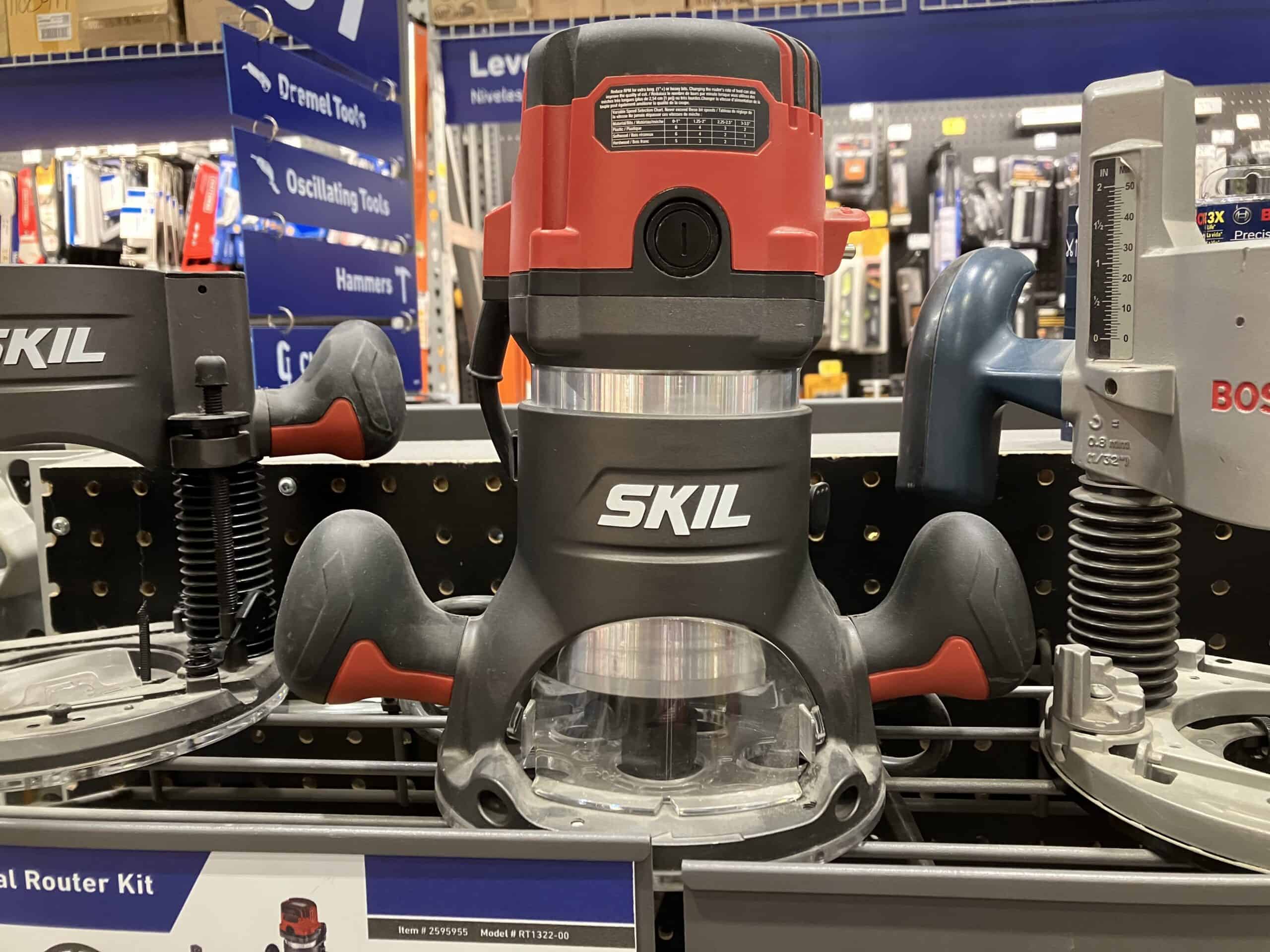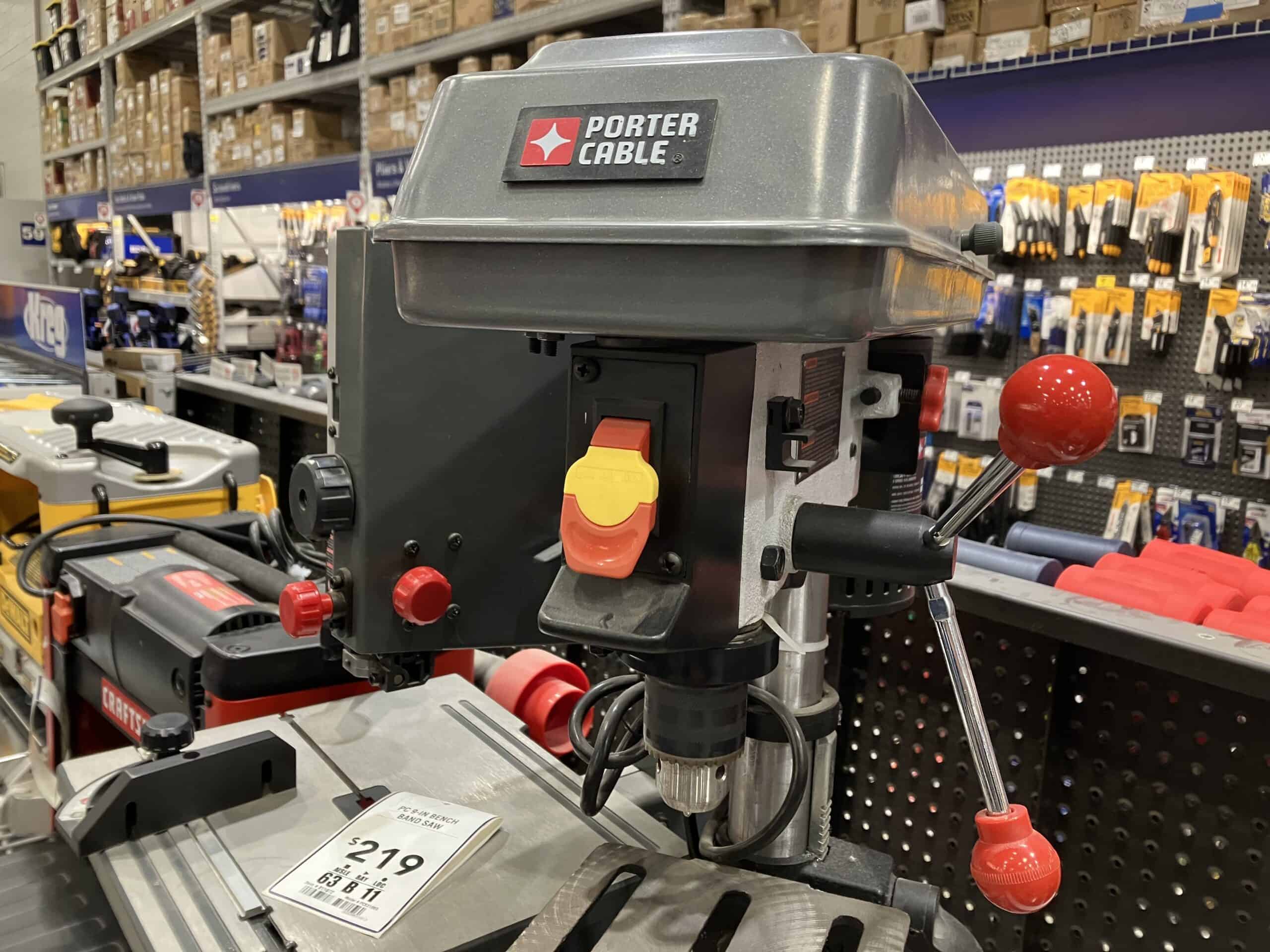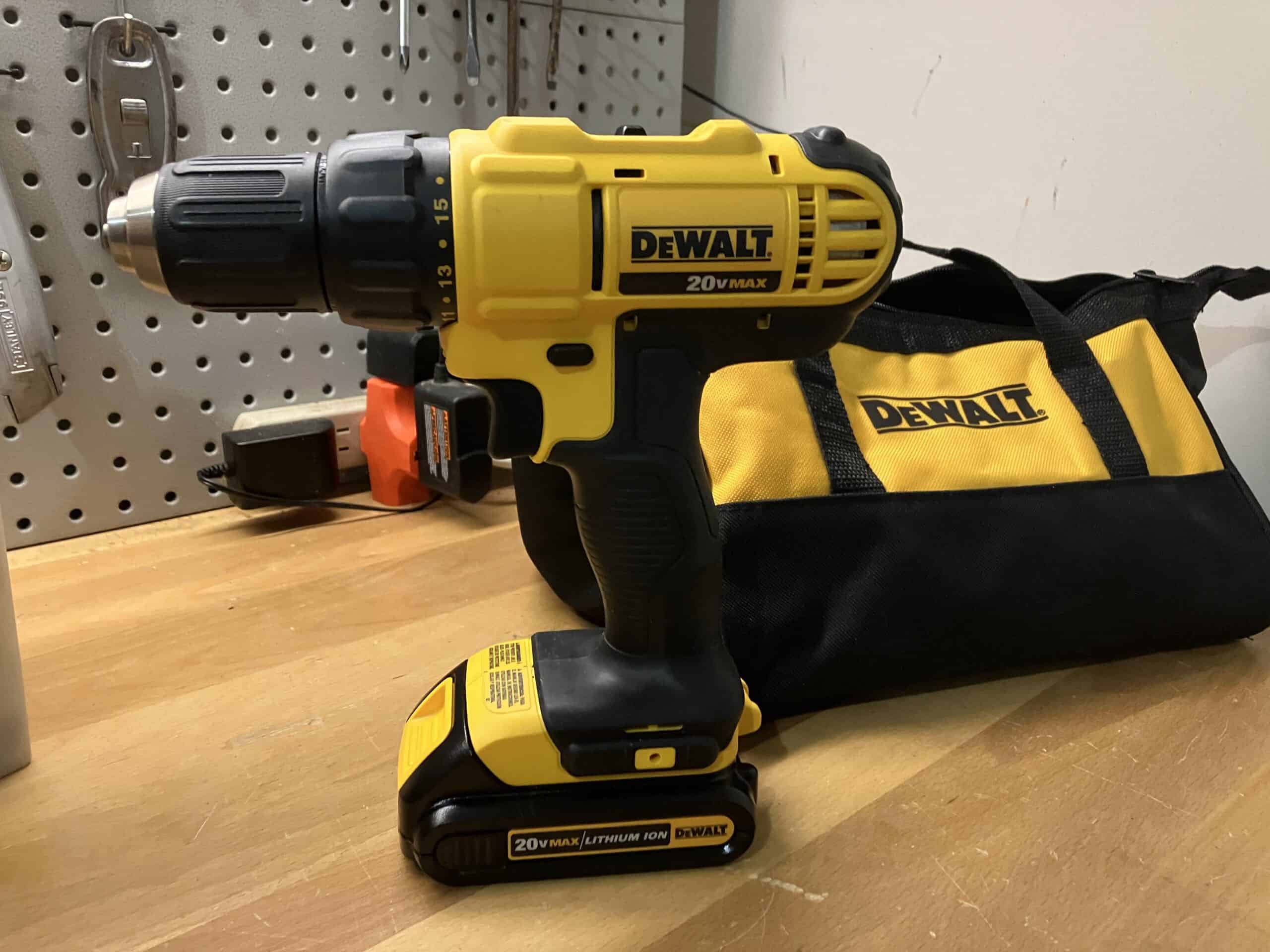Consumer Electronics
The 6 Worst Power Tool Brands in America

Published:
Last Updated:

If your New Year’s resolutions include a commitment to finally completing that DIY project (or tackling a long list of projects because…you know…procrastination), then you are going to need the right tools for the job. The following list is not that. In fact, it’s the exact opposite of that. These are the WRONG power tools for the job. These brands are ranked among the worst power tools in America today.
The glut of power tools on the market makes it difficult to select the tool that is right for your needs. What should be a fairly simple, straightforward choice can quickly morph into indecision laced with feelings of consternation and confusion. If you have ever felt bewildered while aimlessly wandering through The Home Depot or Lowe’s, you’re not alone. Scrolling Amazon complicates the situation even more. With so many brands and such a wide range of price points, choosing a power tool can sometimes feel like a bigger chore than the DIY project itself. That’s why we wanted to help clarify your choices by steering you away from some of the worst power tool brands in America.
We identified six power tool brands that miss the mark. Some are well-established brands that have declined in quality over the years. Others are relative newcomers with dubious reputations. With so many high-quality power tool brands available today, there is no reason to waste your time on these tools. Consumers would be well-advised to skip over these six brands.
To compile this list of the worst power tool brands, 24/7 Wall St. consulted five highly-regarded tool review websites, blogs, and vlogs. Because opinions about power tools can be subjective, only brands that appeared on at least three of these five outlets are included in the list below. We also searched reviews of these brands from major retail outlets to confirm the problems and complaints referenced by these sites.
Snap-on was founded in Milwaukee in 1920 as a manufacturer of sockets that would “snap on” to interchangeable handles. Today, it is a world leader in tool manufacturing for the heavy equipment, automotive, aviation, railroad, and marine industries.
The company also manufactures power tools for both professionals and consumers, but those tools are met with very mixed reviews. Some complaints center on the company’s short warranty period and lackluster customer service. The most common gripe, though, is the sky-high prices of Snap-on tools. How about $400+ for a cordless reciprocating saw that doesn’t even include the battery? With that exorbitant price tag, offering the customer a short two-year warranty is inexcusable.
It should be noted that this is not a commentary on hand tools made by Snap-on. In our research, multiple reviewers rated some of Snap-on’s hand tools among the best on the market (although you will still pay a hefty price for those tools). When it comes to power tools, though, you can do better than Snap-on…and spend far less in the process.

Founded in 1906 in Syracuse, New York, Porter-Cable is one of America’s oldest and most historic tool brands. Some original Porter-Cable tools were even displayed in the Smithsonian, cementing the brand’s legacy as one of America’s most iconic tool manufacturers. For generations, the Porter-Cable brand was synonymous with toughness and quality. These were the no-nonsense tools you needed to get the job done. Sadly, though, those glory days are over.
Black & Decker (now Stanley Black & Decker) purchased Porter-Cable in 2004. The company also purchased Craftsman in 2017. Because of its greater name recognition, the Craftsman brand became the focal point of the company. Porter-Cable was relegated to a lower-level consumer brand power tool, and many experts are unimpressed with the results.
Some of the reviewers in our search called Porter-Cable tools “poorly made,” noting that the tool performance diminishes after just a few months of moderate use. Multiple reviewers also mentioned the high cost and low quality of Porter-Cable batteries.

You’ve heard the adage, “You get what you pay for.” That age-old axiom certainly proves true with Skil power tools. These tools are quite inexpensive but also feature low quality and high user frustration.
Skil was founded nearly 100 years ago and developed a reputation for producing solid tools, especially saws. However, this is another instance where a change in ownership resulted in the degradation of the brand’s quality. The Skil brand was bought and sold multiple times, but the latest acquisition was when Chervon, a manufacturer in Nanjing, China, purchased the brand in 2016. (This is not to be confused with the Chevron Corporation, which specializes in oil and gas.)
Today, Skill power tools feature low-quality materials and short battery life. The company’s subpar customer service is also a common theme among users.
[lasso type=”image” ref=”amzn-teccpo-20v-brushless-impact-driver-cordless-impact-driver-kit-with-1600in-lbs-0-3000rpm-variable-speed-fast-charger-2-0ah-battery-1-4-hex-chuck-for-woodworking-diy-home-repairs-and-more” id=”1347840″ link_id=”581501″]
TECCPO is not a household name like those mentioned above, but this newcomer has risen to prominence in the consumer-grade power tool market. These tools are available from major retailers such as Amazon and Walmart.
TECCPO is owned by the Chinese company, Shenzhen Allsight E-business Co. The tools are inexpensive but do not hold up under moderate use. Battery issues are the most common criticisms among consumers. The life of the battery is often too short to complete a project. The tools also lack the muscle to take on moderate to large jobs.
[lasso type=”image” ref=”amzn-kimo-cordless-impact-wrench-1-2-inch-impact-wrench-kit-w-premium-brake-stop-7-sockets-1-2-impact-gun-brushless-high-torque-impact-driver-with-350-ft-lbs-475n-m-3000-rpm-and-battery-charger” id=”1347842″ link_id=”581502″]
Kimo is a German tool brand that is a big seller on Amazon. The tools are budget-friendly which certainly adds to their appeal. For example, a Kimo cordless ½-inch impact wrench costs less than $70. A similar impact wrench from DeWalt costs over $275. No brainer, right? Not so fast. Amazon notes that the Kimo impact wrench is a “frequently returned item.” There’s a reason for that.
Kimo tools feature notoriously weak batteries. These batteries do not hold an adequate charge to complete many jobs. They also do not provide adequate power to the tools. Poor customer support is also a theme among experts who reviewed Kimo power tools.

Tacklife is another Chinese company whose tools are sold exclusively online. It scored the top spot on our list of power tool brands to avoid, but not just because the tools themselves are inferior. Actual reviews of Tacklife power tools are mixed. They are certainly not professional-grade tools, but some consumers seem pleased overall with the quality of the tools. Others, however, were not at all impressed with Tacklife’s power tools.
However, one very consistent theme among reviewers is the total lack of customer support from the company, including warranty claims. Another disturbing issue was the revelation that Tacklife was involved in purchasing fake reviews on Amazon. A company known as Safety Detective discovered a database that contained evidence of this unscrupulous practice by Tacklife.
Once this information was made public, Amazon removed most of Tacklife’s products. The Tacklife store is still live on Amazon, but there are no products for sale in the store.
Walmart sells a limited number of Tacklife products online. These tools can also be purchased through Tacklife’s website. However, there is no need to waste your time and money on power tools from such a disreputable manufacturer.
The Tacklife story offers guidance on purchasing power tools from Amazon. The online retail site is filled with power tool brands that almost no one knows anything about. Many of these tools appear to be highly rated but, as we have learned, those reviews aren’t always what they seem.
There are power tools for sale on Amazon that are almost certainly worse than the brands listed above. However, these tool brands appear and vanish so rapidly that it is impossible to keep up.
The bottom line is, quite simply, buyer beware. If a power tool brand on Amazon seems to appear from out of nowhere and offers tools at deeply discounted prices, proceed with a heavy dose of caution.

As we researched the worst power tool brands, the opposite end of the spectrum also became quite clear. The reviewers at diygearreviews said their favorite tool brands on average are Dewalt, Milwaukee, and Makita.
Generally speaking, you will pay more for these brands than the ones listed above. (The obvious exception, of course, is Snap-on, whose prohibitive prices are a key reason why the company landed on the list of power tools to avoid.) However, these well-known brands deliver quality, dependability, and long-lasting durability that the tools listed above cannot touch.
The average American spends $17,274 on debit cards a year, and it’s a HUGE mistake. First, debit cards don’t have the same fraud protections as credit cards. Once your money is gone, it’s gone. But more importantly you can actually get something back from this spending every time you swipe.
Issuers are handing out wild bonuses right now. With some you can earn up to 5% back on every purchase. That’s like getting a 5% discount on everything you buy!
Our top pick is kind of hard to imagine. Not only does it pay up to 5% back, it also includes a $200 cash back reward in the first six months, a 0% intro APR, and…. $0 annual fee. It’s quite literally free money for any one that uses a card regularly. Click here to learn more!
Flywheel Publishing has partnered with CardRatings to provide coverage of credit card products. Flywheel Publishing and CardRatings may receive a commission from card issuers.
Thank you for reading! Have some feedback for us?
Contact the 24/7 Wall St. editorial team.